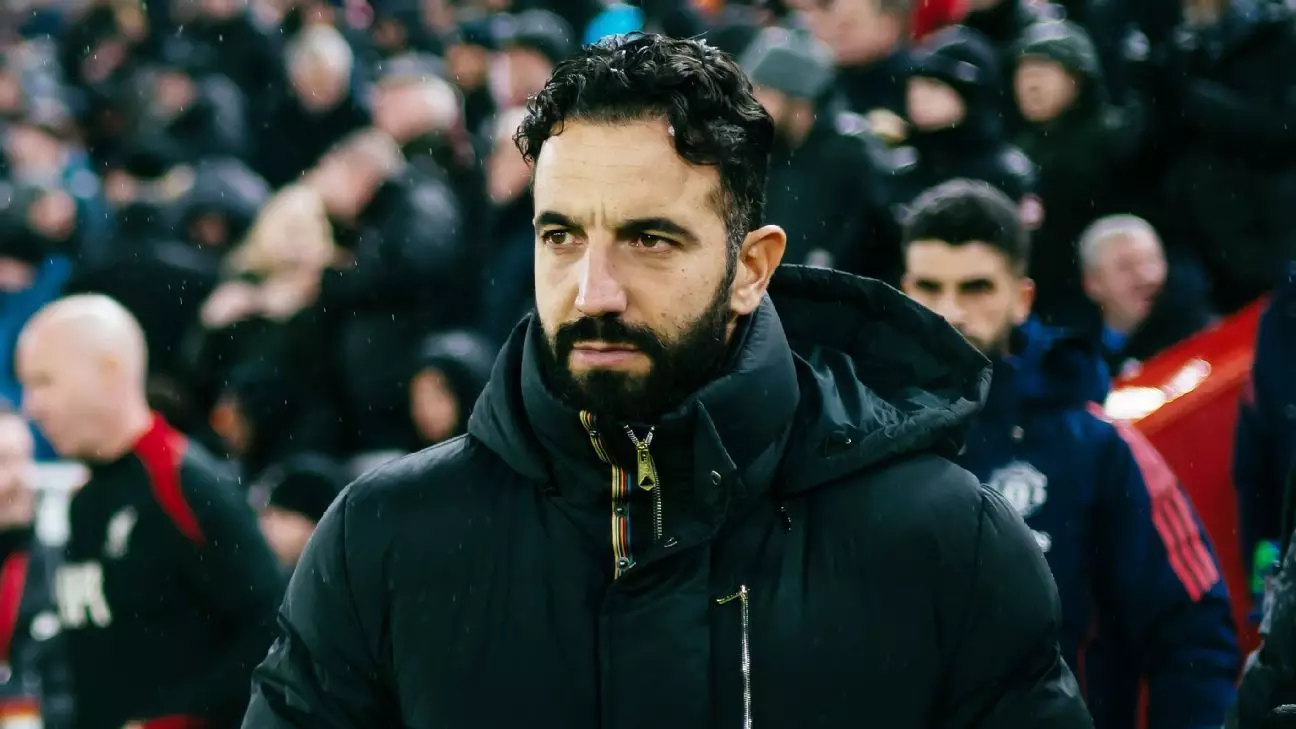As Manchester United wrestles with the weight of expectation and recent disappointments, a glimmer of hope arrived in their spirited 2-2 draw against Liverpool. Under the stewardship of Ruben Amorim, the club is undergoing a transitional phase, defined by an urgent need to reclaim its status among England’s elite. This draw, punctuated by Amad Diallo’s late equalizer at a raucous Anfield, represents more than just a point—it’s a symbol of ambition and the possibility of turning fortunes around after a dispiriting three-game losing streak.
Despite the draw, Amorim has made it clear that he views the team’s performance within a larger context of accountability and motivation. He openly criticized the prevailing comfort zone within the squad, suggesting that complacency has seeped into the fabric of Manchester United’s identity. Amorim’s insinuation that players, and perhaps even club officials, have become “too comfortable,” underscores his intent to instill a culture of urgency and resilience.
Confronting the Comfort Zone
In his post-match reflections, Amorim’s innovative approach to coaching came to the forefront. He described it as “shock therapy,” aimed at jolting the players from their tranquility. This notion of shaking things up is not merely a tactical adjustment; it is a mental recalibration for a team that has suffered significantly in recent months. Amorim seems invested in redefining the team’s mentality, fostering a spirit that sees loss not as a standard expectation but as a rare, unacceptable outcome.
His candid admission about the players’ fear of possession reflects a coaching philosophy that prioritizes confidence and proactivity. Players like Lisandro Martínez, who opened the scoring, and Diallo, who found the net to salvage a point, demonstrated the potential that Amorim is keen to exploit further. However, Amorim remains skeptical. Despite a spirited display, he expressed unhappiness with the team’s overall performance—not out of disappointment with their effort but from a desire for sustained excellence.
Looking ahead, Amorim faces the dual challenge of sustaining momentum from this impactful draw while confronting the realities of inconsistency that have plagued the club. The upcoming fixture against Arsenal in the FA Cup holds particular significance, as it offers an opportunity to reinforce newfound resolve against a long-standing rival. Following this, a home match against bottom-placed Southampton can either solidify United’s revival or plunge them back into confusion.
Consistency is indeed the cornerstone of successful football, and Amorim acknowledges this. His call for mental fortitude reflects a pragmatic understanding of football dynamics. He emphasizes that while discussions about performance are essential, they must be coupled with tangible action on the training ground. Amorim’s insistence on maintaining high standards daily sets a clear expectation: talent alone is insufficient without the grit to back it up.
Amorim also found himself in the spotlight for defending Joshua Zirkzee’s decision-making during the dying moments of the match. Instead of shooting himself, Zirkzee passed to Maguire, who failed to convert. The scrutiny surrounding such choices highlights the intricate web of trust, decision-making, and confidence that players must navigate, especially in high-stakes situations.
Amorim viewed Zirkzee’s decision as shrewd, underscoring a strategic mindset where teamwork supersedes individual glory. Such analysis reveals his intent to nurture a holistic team-oriented culture—one where players are conditioned to make passes rather than taking unnecessary risks.
Ruben Amorim’s approach signifies a pivotal shift for Manchester United. Far from accepting mediocrity, he seems determined to purge the club of complacency, demanding accountability and intensity from every player and individual associated with the club. As he seeks to instill a renewed sense of purpose, the club’s future hinges on both the players’ response to his challenges and their resilience against external pressures. With the right mental framework and a commitment to consistent performance, Manchester United could embark on a journey back to the top, driven by the refreshing perspectives of their ambitious new coach.

